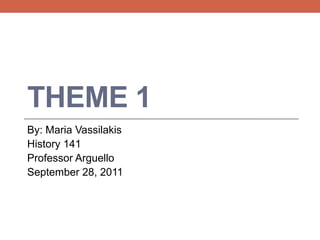1) In the late 18th and 19th centuries, many countries in the Americas gained independence from European colonial powers as the United States and Latin American nations struggled to build independent states and societies amidst migration, economic growth, civil war, and violence.
2) The United States expanded westward in the 19th century, taking Native American lands and causing tensions with Mexico and Canada. Latin American nations looked to the U.S. as a model but had difficulties governing.
3) Several key events shaped the Americas in this period, including the Louisiana Purchase which doubled the size of the U.S., the Haitian Revolution which established Haiti as the first black republic, and the U.S.









